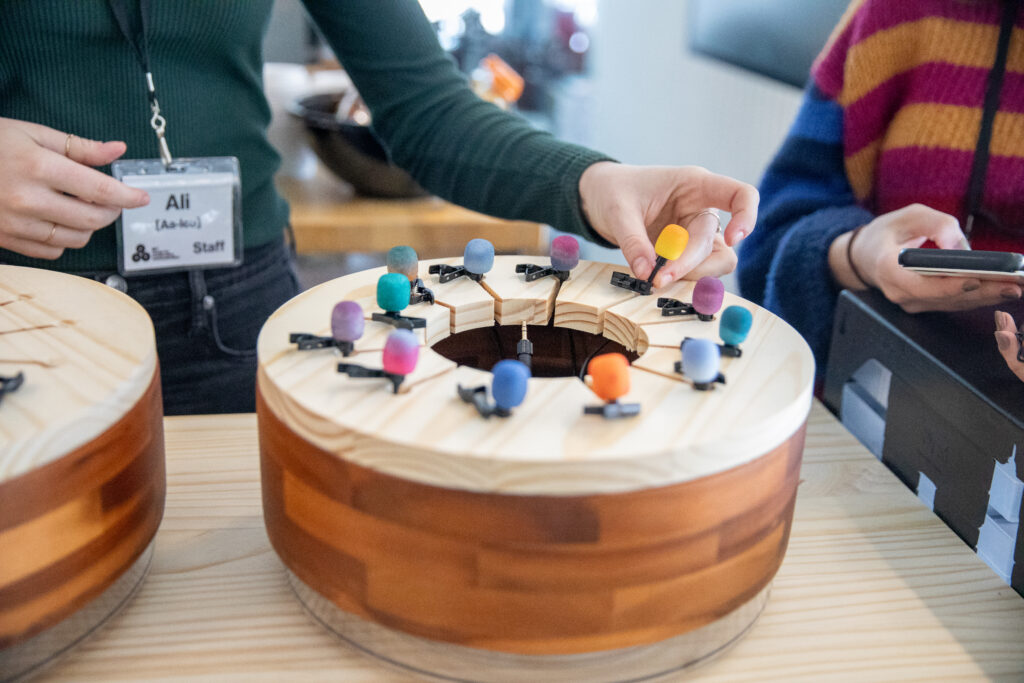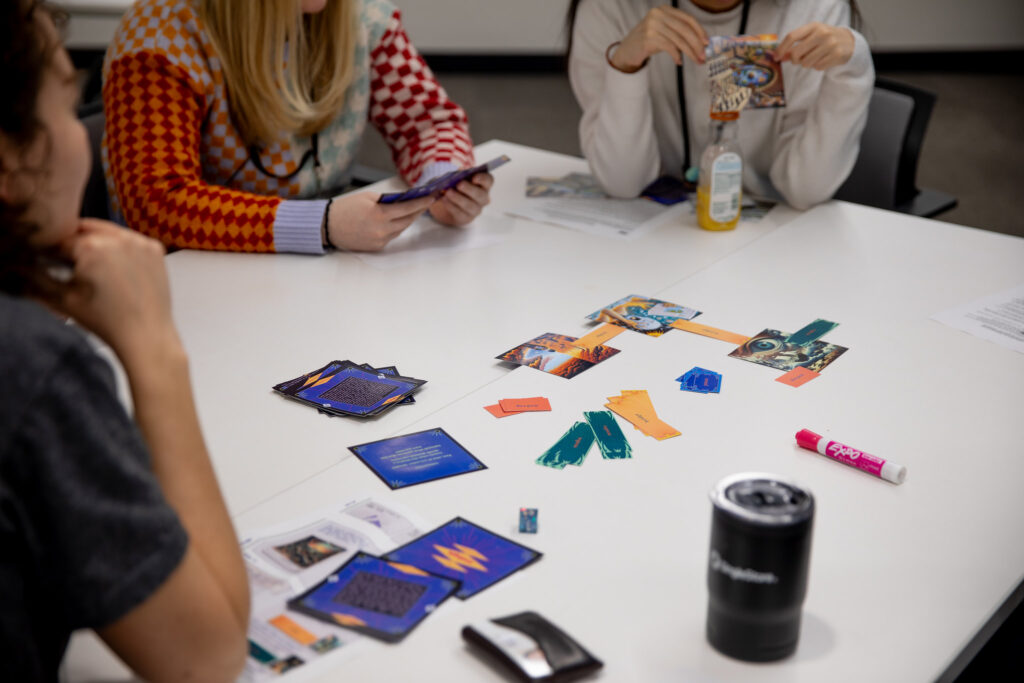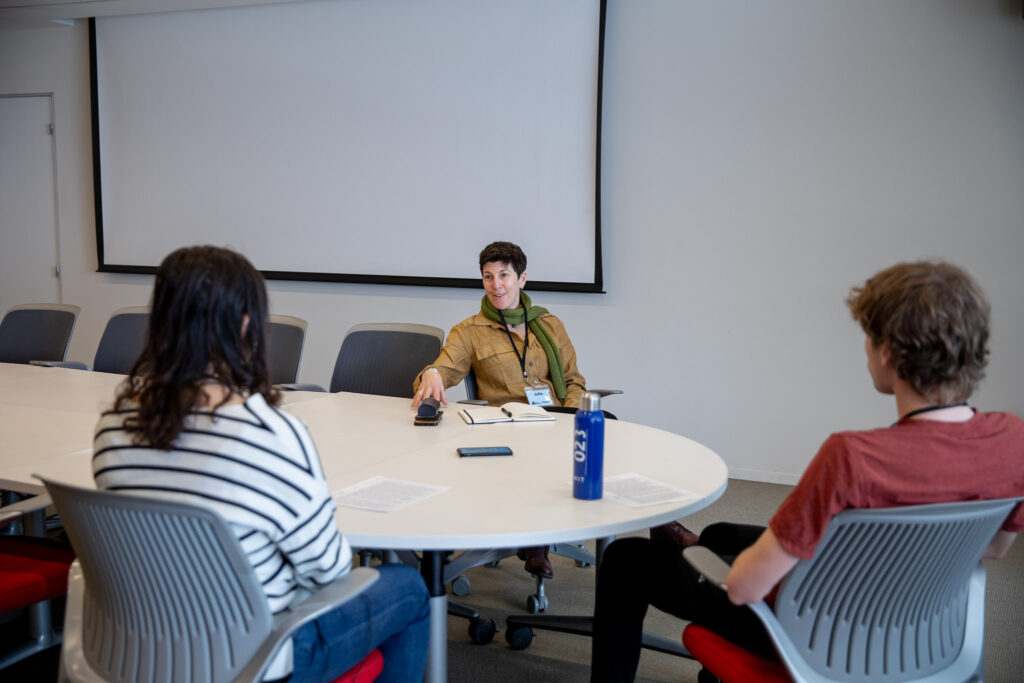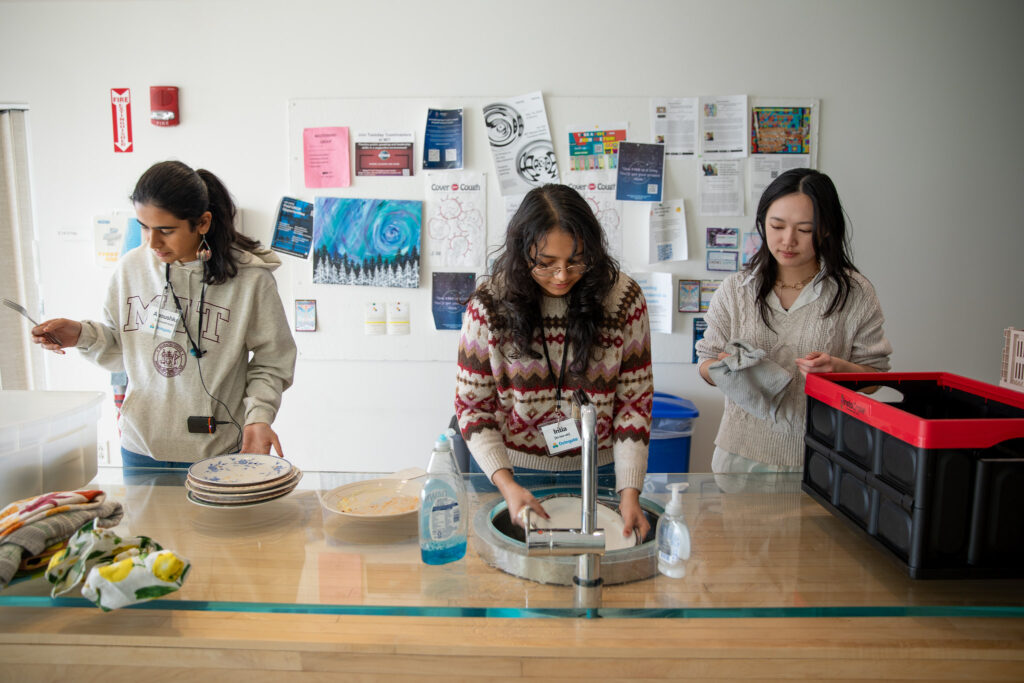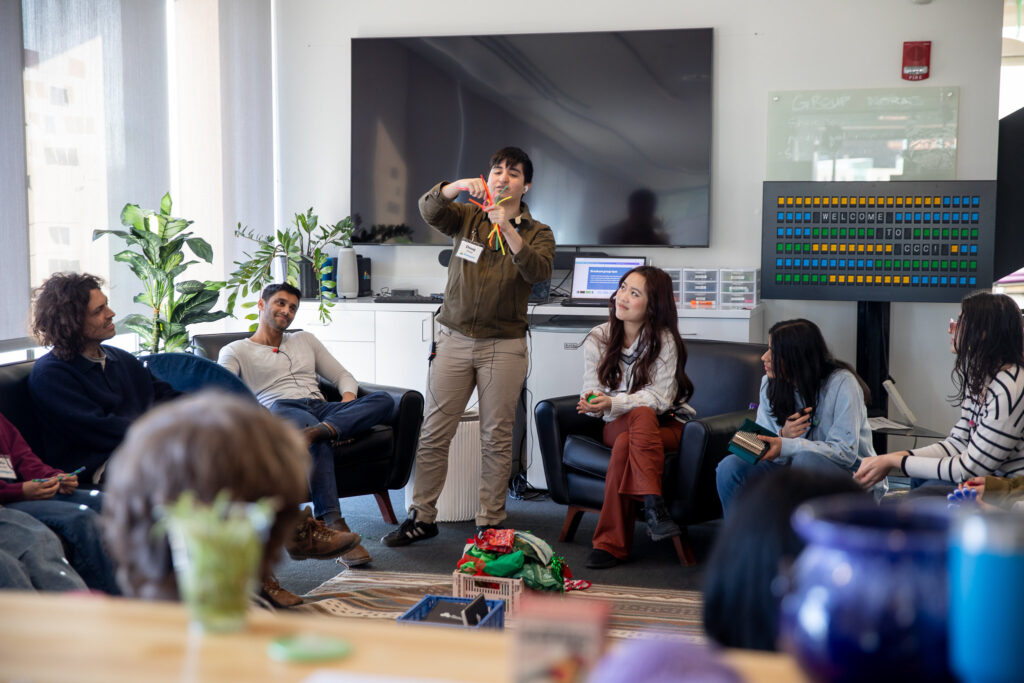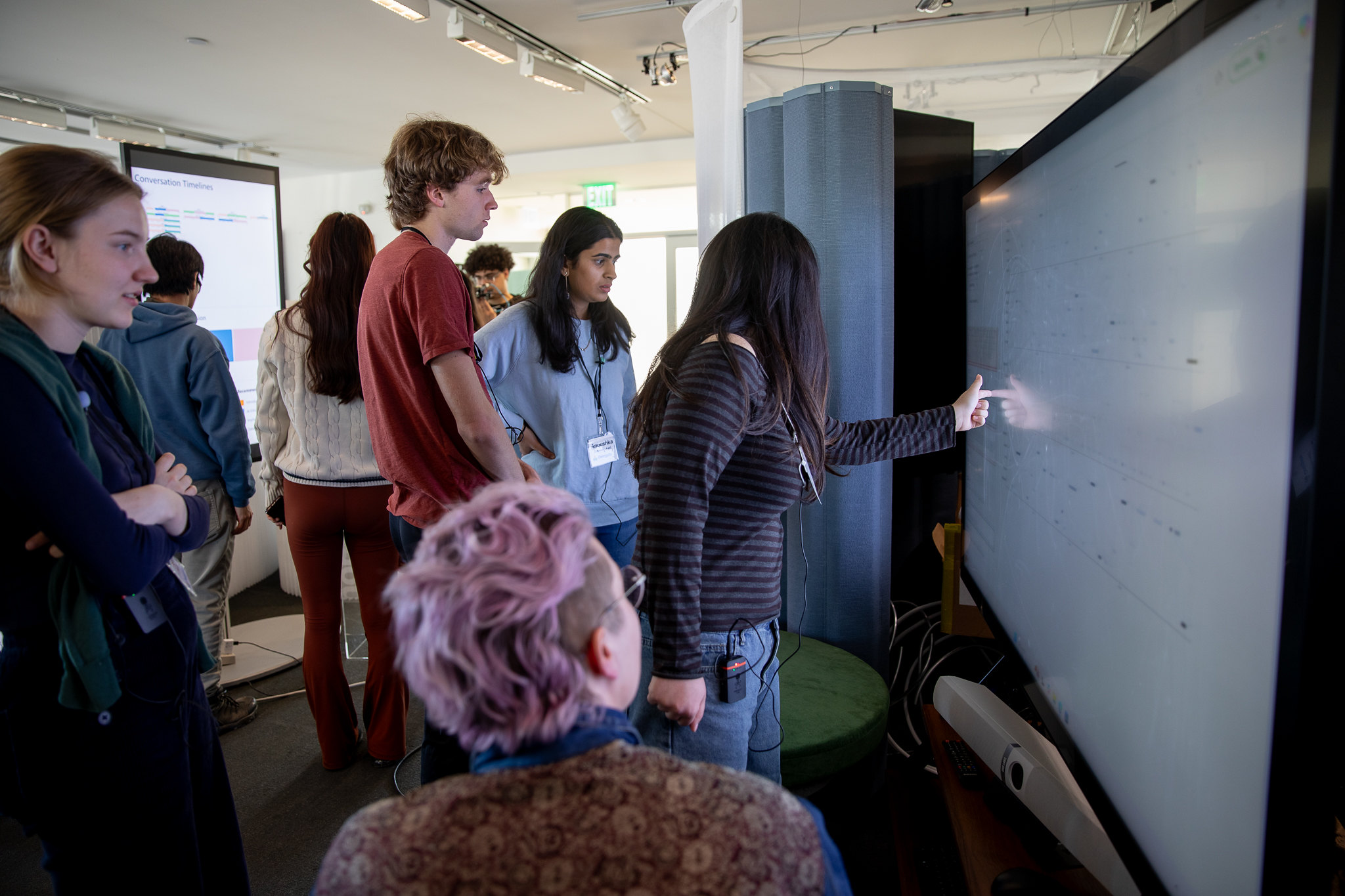In January, 19 MIT students gathered over three days to participate in the second Tech-Enhanced Student Assembly sponsored by MIT’s Center for Constructive Communication (CCC), in collaboration with the international foundation DemocracyNext.
AI-powered technology can help promote meaningful civic engagement
This year’s assembly spanned a period of two weeks, beginning with conversations on Zoom to introduce the student delegates to one another and discuss personal connections to the topic, followed by three days of learning, deliberation, and collaborative–drawing on AI-powered technology to help with problem-solving–before ultimately voting on the recommendations that would be presented to the MIT Office of Sustainability (MITOS) for consideration.
Over the course of the three days, members engaged in the typical activities of Deliberative Assemblies, including a panel discussion with experts followed by the chance to interview experts in groups of two (termed an ‘information fair’). Experts engaged during this phase included: Julie Newman (Director of Sustainability), Steven Lanou (Deputy Director & Senior Project Manager, MITOS), Joe Higgins (MIT Vice President for Campus Services & Stewardship), Chris Rabe (Education Program Director, MIT Environmental Solutions Initiative), Megan Lim (Educational Consultant, MIT Environmental Solutions Initiative), Jeremy Gregory (Executive Director, MIT Climate and Sustainability Consortium), Leela Velautham (Postdoctoral Researcher, MIT Climate and Sustainability Consortium), Kate Trimble (Senior Associate Dean and Director, Office of Experiential Learning), Hessann Farooqi (Executive Director at the Boston Climate Action Network), and Miranda Dotson (Representative of Boston’s Extinction Rebellion).
On the final day, delegates voted on a final series of recommendations; those that received more than 80% endorsement across the delegates were adopted as a part of the final report, which can be viewed along with responses from MITOS here.
Leveraging insights and knowledge gained from our initial tech-enhanced Student Assembly launched in 2024, this year’s event highlighted the use of several new prototypes, including:
- Podcasts generated via NotebookLM to supplement the required readings pre-assembly.
- A live AI-transcription tool, created by Suyash Fulay, CCC PhD student, which would listen to delegates as they brainstormed questions to ask of the experts the following day and would subsequently suggest novel ideas. This ‘Empty Chair’ intervention suggested some missing perspectives that might enhance the conversation (e.g., what a local small business owner would want to know about MIT’s sustainability goals).
- A visualization of suggestion clusters, created by CCC graduate student Elinor Poole-Dayan, to explore which ideas were translated into recommendations. As an intervention, Elinor provided all the spoken ideas in writing to the delegates, who then could choose to either leave these behind or reintegrate them into the final list of recommendations.
- Polis , an open-source platform created by The Computational Democracy Project and integrated into the assembly by Elinor and fellow graduate student Zaria Jalan, allowed delegates to vote privately and quickly. After each vote, opinion groups were visible once patterns in the aggregated data were analyzed by the system.
- A qualitative analysis of the delegates’ discussions, which resulted in this summary of the data and a password-protected web portal. This analysis, spearheaded by CCC’s program manager Marina Rakhilin and prototype manager, Maya Detwiller, which may have taken months without the support of AI codebook generation and tagging tools, was completed within four weeks as a result of CCC and Cortico AI sensemaking prototypes.
Interventions conceptualized and designed by CCC’s research designer Cassie Lee, included:
- A data bar, where students were offered coffee while being guided through a variety of data visualizations to understand how audio recording their discussions could enhance their experience and contribute to a growing body of research.
- A data comic, which was presented in addition to the typical informed consent form, to increase engagement, trust, and understanding of the details of the data privacy protocols.
- A tailored version of the story card game Analogia , which sourced the stories directly from conversations hosted before the assembly.
- Dip-dyed colorful mics, personalized for each delegate to make it really obvious that they were being recorded (and make this part of their identity as delegates). Members selected the color of their mic each day. (Some picked based on outfit or mood of the day!)
In reflection, Marina Rakhilin, program manager at CCC, shares: “I’m really proud of the organizing team for working around the clock throughout this event to ensure our delegates felt the right balance of support and challenge. We want to build up students’ civic muscles in a world where they aren’t often asked to deeply reflect on what they believe in and where those beliefs came from. Rather than rely on debate, which often lacks nuance or an opportunity to build connection, we want to facilitate connection and high-quality deliberation based on our delegates’ deepest experiences and values.”
“This second tech-enhanced student assembly shows what’s possible when deliberation becomes part of campus life,” says Dimitra Dimitrakopoulou, head of translational research & practice at CCC. “Our team is now working actively with the MIT Office of Sustainability to build on this experience and create ongoing spaces for students to engage in the areas of climate and sustainability — showing how cross-campus partnerships can lead to real change.”
